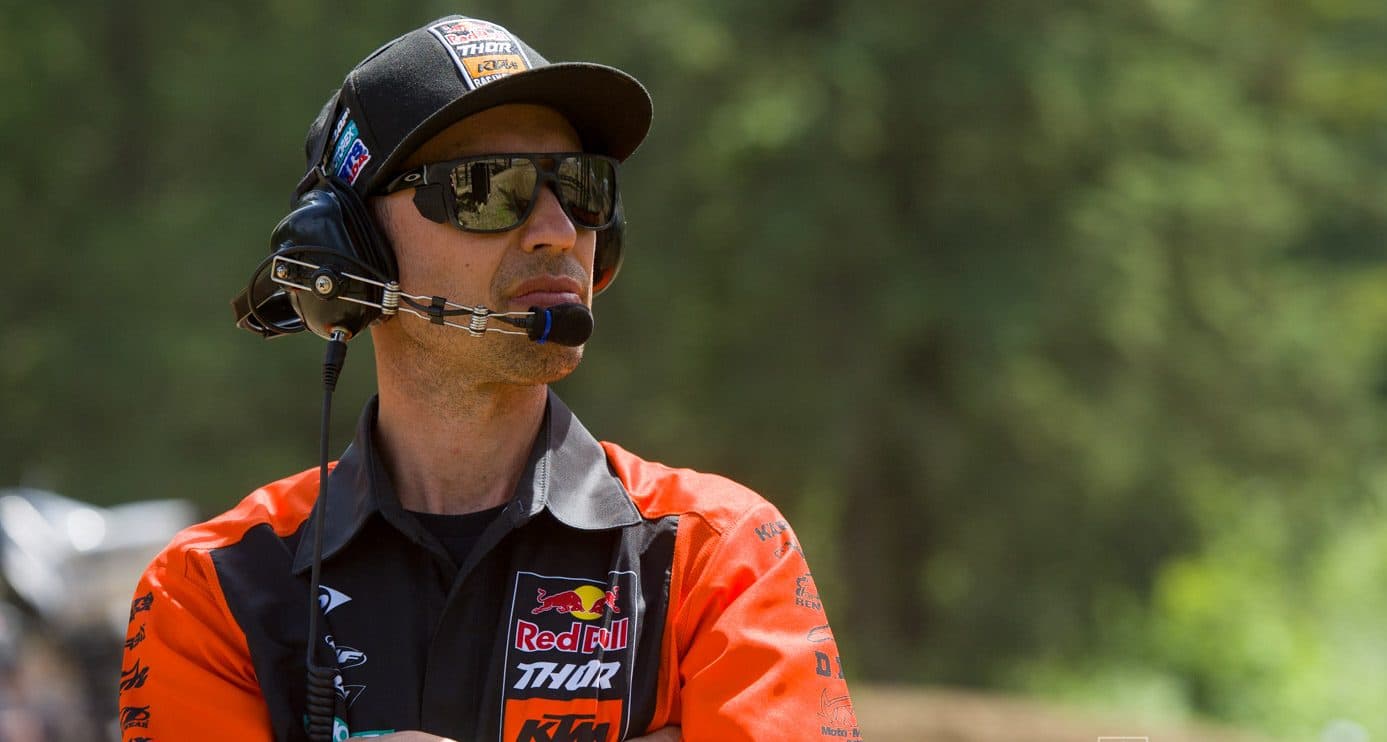Coaching For Success
Championship performances are not always the product of a single athlete’s or even team’s efforts. Those behind the scenes can be instrumental in the preparation and development of the physical, technical and mental performance of their athletes. I am of course referring to the coaches and trainers who are on the front line working hard each day to help each individual and team reach and exceed their performance potential. Coaching is a truly important aspect of most sports and is quickly becoming a large part of the growth development of motocross athletes of all ages and competitive levels.
What most may not realize is that coaches have a stronger impact on the cognitive development of their athletes than they do on the physical. This development can be summarized by looking at four crucial components: Leadership, communication, motivation and attitude.
Leadership
There is an obvious connection between coaching and leadership. Providing guidance, structure and discipline are examples of some of the responsibilities many coaches and leaders must adhere to. However, there is a component of coaching that should not only provide leadership but also inspire it amongst the group members. We call this style of leadership transformational. The aim is to facilitate leadership qualities and transform followers into leaders, creating opportunities and experiences that encourage individuals to flex their leadership muscles and practice these skills the same way they may practice the physical and technical skills in their sport. This style of leadership helps to strengthen two very different cognitive skillsets, independence and interdependence. There is a reliance on our own independent ability to organize and coordinate our ideas and intentions. It is also necessary to rely on and have trust in the efforts and abilities of our team members and support systems. There is a fine balance between these two factors, and recognizing this balance is what makes an effective leader.
Communication
Communication is a necessary tool for any successful group dynamic. How we speak to a group or individual and what we say is crucial to the success of the entire process. The primary focus for coaches is to be aware of the language used when addressing the team or individual. The content should maintain a positive action-oriented consistency. When providing instruction, it is to inform them of what they should have done rather than what they shouldn’t do. Far too often I listen to coaches eager to point out the negative aspects they have observed with the intention of fixing it. This is a unique style of communication that I tend to see most in two facets of competitive performances. The first is with coaches, and the second facet of performance that I see with this type of language is our own self-talk. In every other road of life, we seldom communicate by expressing what we do not want. Coaches should be aware of this phenomenon and do their very best to maintain a positive action-oriented approach to communication. The second part to building effective communication within a group or with an individual can be summed up in one word… Listen.
Motivation
Coaches are constantly looked at for motivation. Some can do a great job of saying the right things or creating a sense of drive in their athletes. For this example, we will be looking more at the latter. It is the coach’s job to inspire a desire to learn, develop and compete. This can be achieved through several very different and creative measures, however many of them will have a common theme involved; a learning approach that is challenging, thought provoking and rewarding. These three ingredients are a part of the recipe for a more intrinsically motivated team or individual.

The proper coaching can sometimes be the difference between winning or losing. Photo by James Lissimore
Attitude
It is my belief that one of the most important factors behind every great coach or leader is the attitude they bring to every practice, training session, competition, race, game, performance, etc. Your attitude is ultimately the only tool you can work with that is entirely in your control. When I refer to attitude, I am referring to three components. How you as a coach choose to respond or react to both positive and negative situations with team members or individuals, and the consistency of your effort, intensity and passion from day to day. Finally, the ego and personal connection to the performance of the team or individual and how you see it reflects on you as a coach. We are always in control of these three pillars of our coaching attitude. Awareness and control of these factors can lead to an overall increase in the leadership experience you can provide.
Work towards understanding how these four concepts apply to your unique coaching style, and at the very least becoming more aware of how they each are helping or hindering your current approach to leadership. These concepts have been found to facilitate existing coaching skill sets, and can lead to a stronger rapport with group members or individuals alike.






